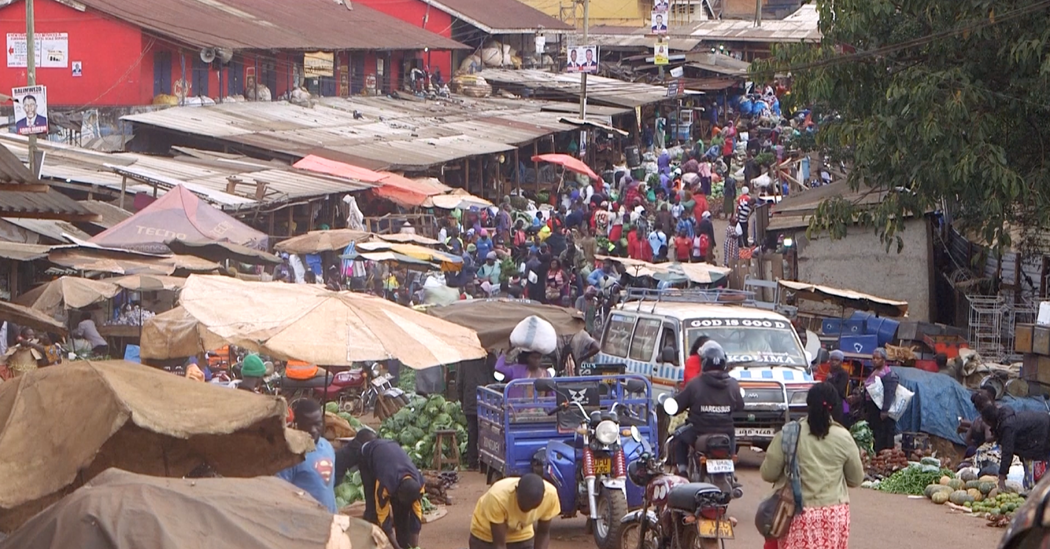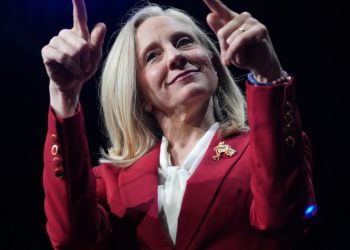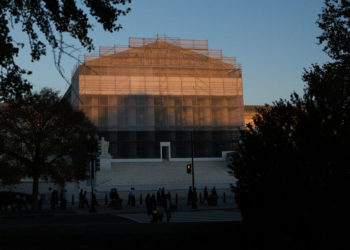As news of the stunning victory of the young Muslim democratic socialist spread from Queens to Washington to California, it also resonated in corners of the world where local American elections typically go unnoticed.
Yet the election of Zohran Mamdani as New York’s first Muslim and first South Asian mayor captured the attention of a subset of people who see a bit of themselves in the kaleidoscopic 34-year-old.
In New Delhi, young people who had instantly connected with Mr. Mamdani over his social media clips that referred to Bollywood films hoped now for an official visit from the mayor-elect, whose parents were born in India.
In Istanbul, young, middle-class women swooned over Instagram posts of Mr. Mamdani and his wife as a symbol of cosmopolitan, big-city Muslims, fawning over the way the two look at each other.
In Dakar, Senegal, where the median age is 19, a professor had already begun piecing together a lecture on the enduring American dream, marveling at the rise of a young immigrant in a nation that increasingly has turned inward.
Though the reaction to Mr. Mamdani’s victory does not quite compare with the global phenomenon attached to Barack Obama when he won the 2008 presidential election, he is undisputably an inspiration in some circles, especially among activists who have gained a footing in their respective countries in changing long-entrenched policies and politics.
“The people who see themselves in him are the same ones now transforming politics across the global south: young, disillusioned, impatient with corruption and inequality, yet newly convinced that they can build something better,” said William Shoki, a South Africa-based writer and editor of the website Africa Is a Country.
Like Mr. Obama, Mr. Mamdani is a global citizen in many ways. He was born in Uganda and spent his early years there. His family immigrated to New York, and he became a naturalized citizen in 2018 and still carries dual citizenship with Uganda.
Mr. Mamdani’s campaign did not focus on identity politics; instead he pushed an affordability platform. Yet in some circles overseas, his identity became inflated.
His rise made headlines worldwide, some of them far from laudatory.
In India, Mr. Mamdani’s prior castigation of Prime Minister Narendra Modi as a “war criminal” has drawn the ire of the Hindu right wing; a parliamentarian from the ruling party posted on social media that Mr. Mamdani “is ready to wipe out Hinduism.” The Israeli newspaper Haaretz quoted an Israeli envoy calling Mr. Mamdani a “clear and immediate threat to New York’s Jewish community.” (In his victory speech Tuesday, Mr. Mamdani maintained that his administration would stand “steadfast alongside Jewish New Yorkers and does not waver in the fight against the scourge of antisemitism.”)
Some prominent Eastern European political and media figures fretted over the mayor-elect’s political leanings, exaggerating his views and calling him a communist.
“We once had a country that controlled not only prices but also people’s thoughts,” Yuriy Lukanov, a Ukrainian public figure, wrote on Facebook. “The filth from communist brains has seeped into American ones.”
In Berlin, journalists noted that Mr. Mamdani’s democratic socialist views are broadly mainstream, especially as they pertain to rent control and public transportation. Some media in Italy marveled at the election of a Muslim socialist in the home of Wall Street. The French left hailed his win; the French right feared the rise of “the woke and Islamist left.”
In Ukraine, Vitaliy Dudin, a lawyer, said Mr. Mamdani’s charisma reminded him of President Volodymyr Zelensky, writing on Facebook, “Now the United States is even more like Ukraine.”
Many across the globe saw in Mr. Mamdani’s election a reflection of their own struggles.
Utsav Guhathakurta, a musician from Kolkata, was glued to Tuesday night’s election results thousands of miles away, hoping for a win for Mr. Mamdani.
Mr. Mamdani had caught Mr. Guhathakurta’s attention when a post by the candidate complaining about the rising price of chicken or lamb over rice from a halal cart turned up on his Instagram feed. He followed the campaign because he could identify with Mr. Mamdani’s political values, especially his push for better public transportation and affordable housing.
“The issues he spoke about really resonated with me — somebody in 2025 as urban millennial,” Mr. Guhathakurta said.
Mr. Mamdani’s connection to young people and the problems they face contributed to his victory in New York City but also captured the mood of many young leaders across the world where youth uprisings over entrenched political systems have spurred protests in several countries and toppled governments in Madagascar and Nepal.
“America has a better future with these kinds of people,” said Sunil Phuyal, a leader of the Gen Z movement in Nepal. “The people of New York are blessed.”
In Uganda, where Mr. Mamdani spent his early years and returned over the summer to celebrate his wedding, he is not a household name. But those who know him celebrated his win.
In Kampala, the capital, some residents immediately identified with Mr. Mamdani’s relative youthfulness and hoped he would usher in changes that their own country could look to as a role model.
“Seeing Mamdani advocating to create more opportunities for the youths in the U.S. should now inspire our leaders back home here to create more opportunities for the youth in Uganda,” said Gerald Norman Katongole, who lives in Kampala.
In Dakar, the capital of the overwhelmingly Muslim nation of Senegal, Diome Faye took note of Mr. Mamdani’s candidacy, surprised that a Muslim immigrant was gaining traction in a nation that has tried to close its borders.
In his American literature and civilization course at Cheikh Anta Diop University, Dr. Faye plans to teach his students about Mr. Mamdani’s rise. It is, he said, a sign that American values persevere.
“What I want to teach them is the U.S. still holds to its founding values,” he said. “You can still reach the American dream of life, liberty and the pursuit of happiness.”
Reporting was contributed by Alex Travelli, Suhasini Raj,Pragati K.B., Safak Timur, Hannah Beech, Christopher F. Schuetze, Matthew Mpoke Bigg, Musinguzi Blanshe, Kim Barker, Nataliia Novosolova, Motoko Rich and Aurelien Breeden.
Dionne Searcey is a Times reporter who writes about wealth and power in New York and beyond.
The post How the World Sees Mamdani: Icon, Threat, Proof of the American Dream appeared first on New York Times.




